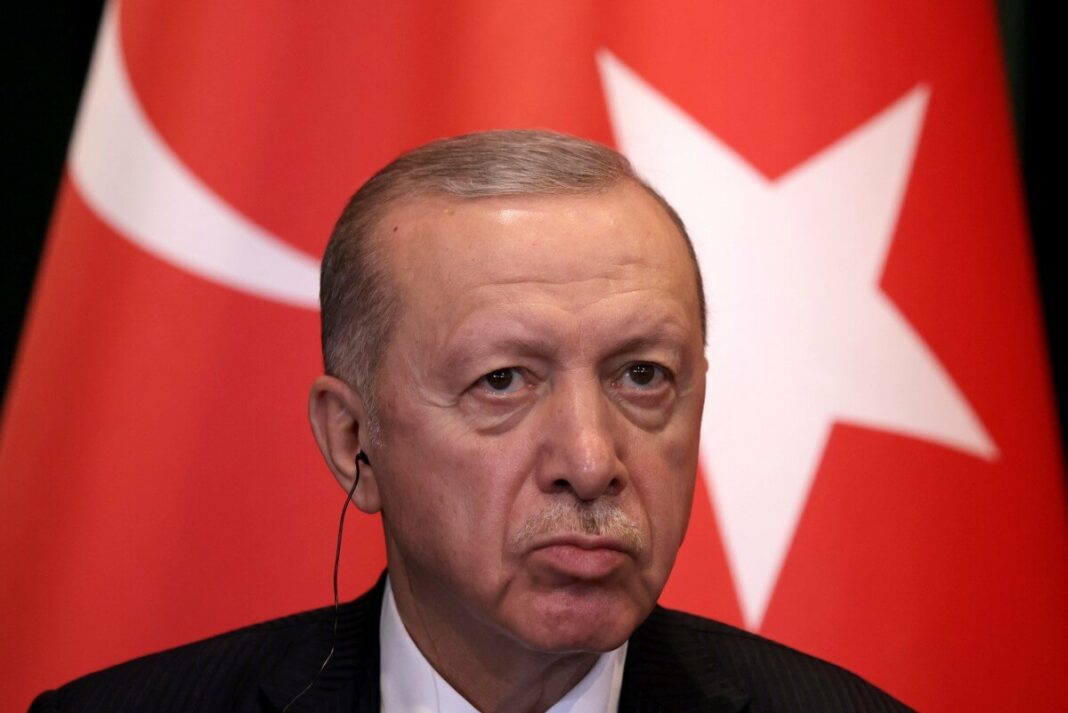A majority of Turks, 66.3 percent, are against a constitutional amendment that would allow President Recep Tayyip Erdoğan to run again in the election to be held in 2028, local media reported over the weekend, citing a recent opinion poll.
According to the Turkish Constitution, presidential and parliamentary elections must be held simultaneously. The most recent elections were in May 2023, when Erdoğan secured another term as president. The next general election is scheduled for 2028.
The Constitution also stipulates that the president can only serve a renewable five-year term if elections are held as scheduled. Erdoğan was first elected president under the parliamentary system in 2014. However, this term is not counted as his first term since it was not under the presidential system of governance Turkey adopted following a public referendum in 2017.
In Metropoll’s “Turkey’s Pulse” survey for November, participants were asked, “Do you want the Constitution to be amended so that Erdoğan can run for president again in the next election?”
The results revealed that 66.3 percent of respondents answered “no,” including 40.2 percent of the ruling Justice and Development Party (AKP) supporters and 55 percent of voters from its far-right ally, the Nationalist Movement Party (MHP).
Opposition to amending the Constitution for Erdoğan’s re-election rose to 83 percent among voters of the main opposition Republican People’s Party (CHP), 87.6 percent among voters of the nationalist opposition İYİ (Good) Party and 88.9 percent among supporters of the pro-Kurdish Peoples’ Equality and Democracy Party (DEM Party).
The overall percentage of respondents who viewed a constitutional amendment favorably, allowing Erdoğan to run for office again, stood at 28.5 percent, while 5.2 percent chose not to answer the question.
Although Erdoğan said before the local elections held on March 31 that it would be his last run before leaving office, there are claims that he is seeking a constitutional amendment that would make another term for him at the top of the state possible.
The same survey also revealed that 37.8 percent of Turks preferred Ankara Mayor Mansur Yavaş of the CHP as the party’s presidential candidate in the upcoming elections. The preference dropped to 21.6 percent for İstanbul Mayor Ekrem İmamoğlu and just 7.4 percent for CHP leader Özgür Özel.
The approval ratings of politicians indicated that 63.5 percent of participants said that they “like” Yavaş, while the figure was 48.7 percent for İmamoğlu and 32.6 percent for Özel. As for President Erdoğan, 40 percent of respondents expressed a favorable opinion, while 51.9 percent said that they did not like him.
İmamoğlu is seen as the strongest political rival to Erdoğan. He along with Yavaş were cited among possible presidential candidates to challenge Erdoğan in the presidential election last year. However, it was ultimately former CHP leader Kemal Kılıçdaroğlu who was nominated by a group of opposition parties as their presidential candidate and was defeated.
When respondents were asked the open-ended question “Which party would you vote for if a general election were held this Sunday?” In all, 30.3 percent said they would vote for the main opposition CHP, followed by the ruling AKP (30 percent), the DEM Party (9.8 percent), the MHP (7.6 percent), the İYİ Party (6 percent), the Victory Party (ZP) (4.2 percent), the New Welfare Party (YRP) (3.5 percent), the Felicity Party (SP) (1.8 percent), the Anahtar (Key) Party (1.7 percent) and other parties (5.1 percent).
The AKP received 36.3 percent of the vote, while the CHP garnered 25.8 percent in the most recent general election held in May 2023.
The survey comes after Erdoğan’s ruling AKP suffered its worst election defeat since coming to power two decades ago. In the March 31 local polls, the CHP emerged as the country’s leading party after decades out of power.
The CHP garnered 37.7 percent of the vote, maintained control of key cities and secured substantial gains in other regions in the March elections, while the AKP, for the first time in 22 years, came in second, garnering only 35.4 percent of the vote.
Erdoğan, whose ruling AKP has been in power as a single-party government since 2002, was elected president in 2014 and re-elected in 2018 and 2023. His election in 2018 was under a presidential system as Turkey switched from a parliamentary to a presidential system of governance with a public referendum in 2017.
Under the presidential system, Erdoğan is accused by critics of establishing one-man rule in the country, engaging in massive corruption and using the state’s resources for the benefit of his family and cronies while the Turkish people are overwhelmed by the increasing cost of living caused by the depreciation of the Turkish lira and record levels of inflation.


